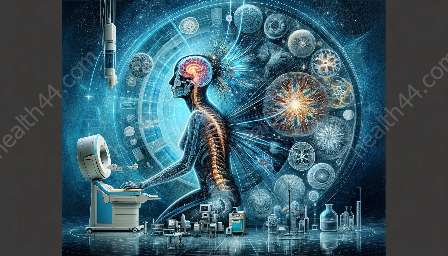Image reconstruction in radiologic technology is a crucial process that plays a significant role in the field of radiology. It involves the creation of detailed, high-quality images from raw data collected by imaging devices such as X-rays, CT scans, and MRI.
By understanding the principles and techniques of image reconstruction, radiologic technologists can contribute to accurate diagnosis and treatment planning, ultimately impacting patient care and outcomes.
The Importance of Image Reconstruction
Image reconstruction is fundamental to the practice of radiologic technology, as it enables healthcare professionals to visualize and analyze internal structures, identify abnormalities, and provide precise medical interventions. The reconstructed images serve as a primary diagnostic tool in numerous medical specialties, including oncology, cardiology, orthopedics, and neurology.
Furthermore, image reconstruction enhances the ability to detect subtle changes and abnormalities, leading to earlier disease detection and better patient management. It also aids in surgical planning, radiation therapy, and monitoring treatment responses, ultimately improving patient care and clinical outcomes.
Techniques and Technology
Various imaging modalities employ different techniques and technologies for image reconstruction, each with its unique advantages and challenges. For instance, CT scans use algorithms such as filtered back projection and iterative reconstruction to transform raw projection data into cross-sectional images with exceptional spatial resolution and tissue contrast.
Similarly, MRI utilizes Fourier transformation and k-space processing to reconstruct multi-planar images with superior soft tissue contrast and functional information. Advanced imaging techniques, including 3D and 4D reconstructions, further enhance the visualization of complex anatomical structures and dynamic physiological processes.
In recent years, the evolution of computational algorithms, machine learning, and artificial intelligence has revolutionized image reconstruction in radiologic technology. These innovations have accelerated the processing speed, reduced radiation exposure, and improved image quality, paving the way for precision medicine and personalized healthcare.
Challenges and Innovations
Despite the advancements in image reconstruction, radiologic technologists and researchers continue to encounter challenges in optimizing image quality, minimizing artifacts, and reducing scan times. Addressing these challenges requires ongoing research and innovation to refine reconstruction algorithms, develop novel imaging protocols, and integrate emerging technologies into clinical practice.
Furthermore, the integration of quantitative imaging and functional imaging into reconstruction algorithms has opened new frontiers in radiologic technology. By extracting quantitative data and functional parameters from reconstructed images, healthcare providers can obtain valuable insights into disease processes, treatment responses, and the individualized assessment of patient pathophysiology.
Education and Training
Proficient knowledge of image reconstruction is a vital component of a radiologic technologist's skill set. Training programs and educational curricula should encompass comprehensive coverage of image acquisition, data processing, and reconstruction principles. Additionally, continuous professional development and hands-on experience with cutting-edge imaging systems are essential for staying abreast of evolving techniques and technologies.
Moreover, fostering collaboration between radiologic technologists, radiologists, physicists, and computer scientists is imperative for advancing the field of image reconstruction. Interdisciplinary cooperation can drive innovation, accelerate research endeavors, and nurture a culture of continuous improvement in radiologic technology.
Conclusion
Image reconstruction in radiologic technology is a dynamic and indispensable aspect of modern healthcare. Its multifaceted impact on diagnostics, treatment planning, and therapeutic interventions underscores its significance in the realm of radiology. As technology continues to evolve and methodologies advance, image reconstruction will remain at the forefront of innovation, shaping the future of radiologic technology and healthcare delivery.


